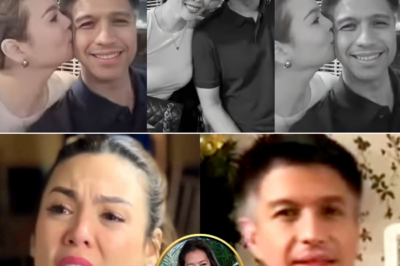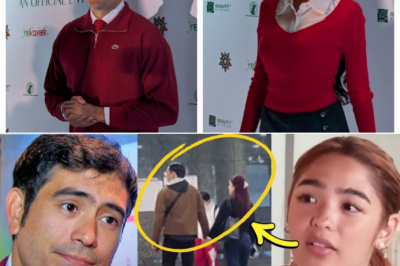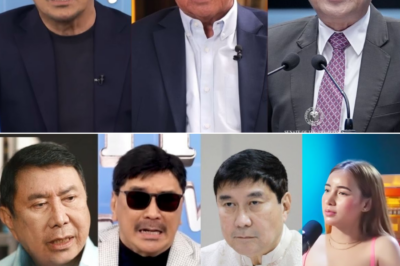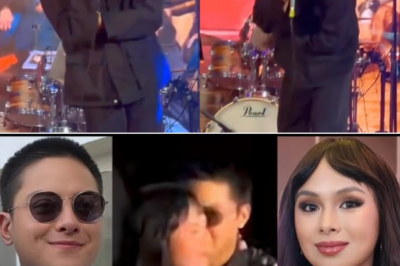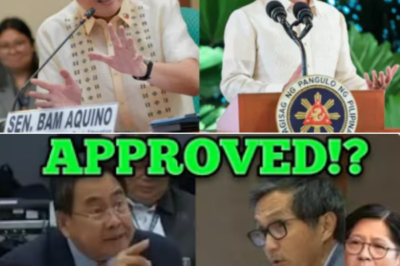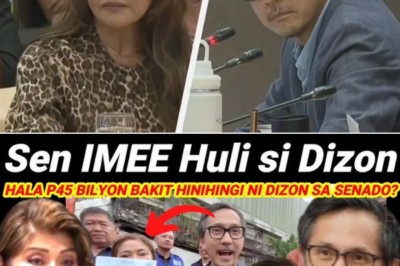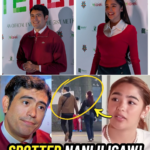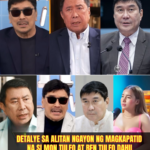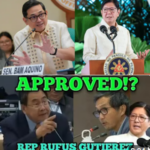1. A Quiet Drive Turns Violent
It was a quiet afternoon when Elías, a calm and composed federal officer, left his mother’s home after checking on her health. He drove carefully through a residential neighborhood, obeying every traffic law. His seatbelt was fastened, his headlights were on, and nothing appeared out of place. Yet, as he reached an intersection, two police cars suddenly blocked his way. Within seconds, two white officers approached his vehicle aggressively. Without asking questions or checking documents, one shattered his car window, and the other slapped him across the face. Elías, shocked and bleeding, raised his hands in surrender. He had committed no crime, yet violence greeted him.

2. Brutality Without Cause
The brutality didn’t stop at the broken window. The officers dragged Elías out of the car, slammed him onto the ground, and pinned his neck under a knee. They called him names, accused him of hiding drugs, and searched his car without a warrant. All the while, neighbors started recording everything with their phones. Elías didn’t resist. He knew that one wrong move could end his life. Instead, he asked calmly, “Why is this happening?” but received a spit in the face in return. The scene was a painful reminder of systemic prejudice, unfolding in broad daylight with no remorse from the aggressors.
3. The Truth in a Blue Briefcase
As the search continued, one of the officers opened a blue briefcase in Elías’s car, expecting to find drugs or weapons. What he found instead left him stunned: government-sealed documents, a federal badge, and a letter signed by the Secretary of National Security. The realization hit hard—they hadn’t just assaulted any man. They had attacked a high-ranking federal agent. The officer stepped back in panic, while his partner tried to pretend nothing had changed. But it had. The balance of power shifted instantly, and fear crept into the very people who had inflicted so much harm moments ago.
4. When the Community Watches
The neighborhood was no longer silent. People were whispering, pointing, recording. A respected elder walked up and asked the officers if they knew who Elías was. They ignored him. Still, phones continued to film, and the livestream drew hundreds of viewers. The younger officer started to look nervous. “This doesn’t feel right,” he muttered to his partner, but the older cop pushed ahead. He believed they could cover it up. But the camera doesn’t lie. Every second was being documented, and every bystander knew something historic was unfolding—an injustice too loud to ignore.
5. Authority Arrives in Silence
A black, unmarked vehicle pulled up quietly. From it stepped two men in dark suits. They walked toward the scene without a word to the officers and used a special key to unlock Elías’s handcuffs. “Are you all right, Director?” one of them asked, confirming what the officers now feared. Elías wasn’t just a federal agent. He was their superior. Panic spread across the officers’ faces. One tried to explain, “We didn’t know who he was.” But it was too late. Their actions had been seen, recorded, and witnessed by dozens. The truth was out, and silence no longer protected them.
6. No Words Needed
Elías didn’t raise his voice. He didn’t retaliate. His silence said more than any shout ever could. He stood up, brushing off the dust, blood still staining his shirt. One officer, trembling, tried to offer a handshake, but Elías didn’t take it. There was no need. The men in suits began calling for immediate action. “Do you realize what you’ve done?” one said sharply. “You’re finished.” The officers could only stare, speechless and drenched in sweat. The roles had reversed completely. Justice now stood tall beside Elías—and with it, the weight of accountability the officers never expected.
7. Arrested Before the Crowd
In front of the entire neighborhood, with cameras still rolling, the same police officers who had attacked Elías were placed in handcuffs. A video call to the district attorney confirmed the charges: federal abuse of authority and racial discrimination. The younger officer cried, begging for mercy. “I didn’t know who he was,” he sobbed. But the damage was done. Their badges meant nothing now. The patrol car, once a symbol of power, became their transport to justice. This time, there would be no hiding behind uniforms. Their names, faces, and actions were now permanently etched into public memory.
8. A Broken System Exposed
At the station, Elías met with a superior officer who offered an institutional apology. But Elías remained firm. “This isn’t just about me,” he said. “This happens every day—just not always on camera.” His words hit hard. The system wasn’t broken in silence. It was exposed because it was finally recorded. The apology was not enough. Consequences were necessary. Change had to come from action, not words. Elías didn’t seek revenge. He demanded accountability. For too long, abuse had been excused, dismissed, or ignored. But this time, the evidence was undeniable—and the country was watching.
9. The Power of Going Viral
In the days that followed, the video spread like wildfire across social media. People from all walks of life shared the story, not just for its injustice but for the quiet dignity Elías displayed. He became a symbol—not of victimhood, but of integrity and resistance. Leaders, activists, and even law enforcement veterans expressed outrage. The incident sparked debates, protests, and demands for police reform. Elías was invited to speak on national television. When asked why he stayed calm, he replied, “Because if I hadn’t, I’d be dead.” His words echoed in the hearts of millions.
10. A Child’s Words, A Nation’s Hope
A month later, Elías returned to the neighborhood where everything began. This time, he was welcomed with hugs, gratitude, and tears. A young boy walked up to him and said, “I want to be like you—someone who doesn’t fight but still wins.” Elías smiled for the first time in weeks. In that moment, he realized the impact he had made. It wasn’t just about justice. It was about awakening minds. The boy didn’t see fear. He saw strength. And Elías knew that real change begins when the next generation chooses dignity over hate and courage over silence.
Conclusion: More Than Just One Man
Elías’s story isn’t just about a wrongful arrest. It’s about what happens when power is abused, and what must happen to hold that power accountable. His silence wasn’t weakness—it was strength in its purest form. The system failed him, but it also revealed itself to the world. Two officers lost their careers, but their downfall opened the door for reforms that many had long demanded. Elías reminded the world that respect cannot be demanded through fear or force. It must be earned through humanity. And sometimes, the strongest voices are those that never shout—but still change everything.
News
Claudine Barretto at Milano Sanchez, Hiwalay Na! Lihim na Sigawan sa Tahanan Nagbukas ng Lihim na Tensyon
Simula ng AlitanUsap-usapan ngayon sa social media ang diumano’y paghihiwalay nina Claudine Barretto at Milano Sanchez, kapatid ng broadcast journalist…
Gerald Anderson at Andrea Brillantes, Lihim na Nagde-Date? Andrea Nagsalita, Netizens Nabigla sa Posibleng Relasyon
Sa mundo ng showbiz, ang bawat galaw ng mga kilalang artista ay agad nagiging usap-usapan, lalo na kung may halong…
Tuloy-Tuloy na Bangayan: Ben at Mon Tulfo, Nagkainitan Dahil sa Isyu nina Raffy Tulfo at Chelsea Elor
Sa mundo ng showbiz at politika sa Pilipinas, bihira ang mga pamilya na lantaran ang alitan sa publiko, lalo na…
Isang Halik sa Gitna ng Musika: Daniel Padilla, Lantad ang Lambing kay Kaila Estrada sa Concert na Pinag-usapan ng Lahat
Sa mundo ng showbiz sa Pilipinas, sanay na ang publiko sa mga tsismis, espekulasyon, at mga relasyong madalas ay nababalot…
“Trabaho Lang Po”: PBBM at Sec. Vince Dizon Pinuri sa Bicameral Matapos Igiit ang Reporma at Pagbawas sa Overpricing sa DPWH
Sa gitna ng maiinit na diskusyon at matitinding alegasyon tungkol sa 2026 national budget, isang malinaw na mensahe ang umangat…
Imee Marcos Hinamon si Vince Dizon sa Budget ng DPWH: Dagdag na ₱45B, Paulit-ulit na Paliwanag, at Matinding Sagutan sa Bicameral
Uminit ang talakayan sa loob ng Bicameral Conference Committee (Bicameral) matapos harapang kuwestiyunin ni Senator Imee Marcos ang Department of…
End of content
No more pages to load

